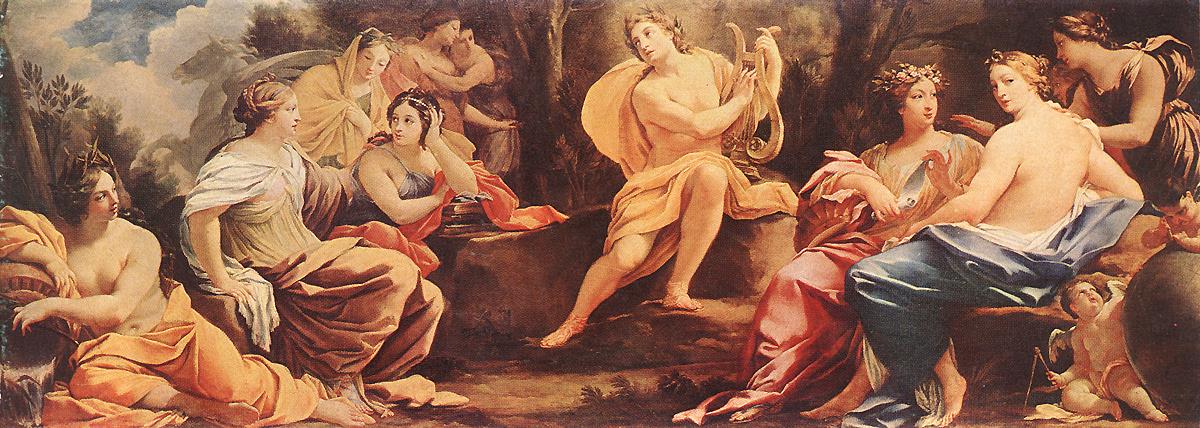Description
The painting "Parnassus or Apollo and the Muses" by the artist Simon Vouet is a fascinating work that captivates viewers with its unique artistic style and masterful composition. With an original size of 88 x 222 cm, this painting is one of the most outstanding pieces of the Baroque period.
Simon Vouet's artistic style is characterized by his fusion of classical and renaissance elements with a baroque aesthetic. In "Parnassus or Apollo and the Muses", this combination is made evident through the representation of the mythological characters and the exuberant ornamentation that surrounds the scene.
The composition of the painting is impressive and shows Vouet's ability to create a balanced and dynamic scene. At the center of the work is Apollo, the god of arts and music, surrounded by the nine muses. Each muse is represented individually, with gestures and poses that reflect her particular area of artistic influence, such as poetry, dance, music, and history.
The use of color in "Parnassus or Apollo and the Muses" is vibrant and full of life. Vouet uses a rich and varied palette, with intense tones that highlight the beauty of the characters and the energy of the scene. Warm and bright colors contribute to creating a festive and joyful atmosphere.
The history of the painting dates back to the 17th century, when it was commissioned by Cardinal Richelieu to decorate the Palais Cardinal in Paris. This masterpiece was one of many paintings Vouet created to embellish the palace and demonstrate the cardinal's patronage of the arts.
Despite its historical and artistic importance, "Parnassus or Apollo and the Muses" is a work that often goes unnoticed compared to other famous paintings of the Baroque period. However, its beauty and its transcendental message deserve to be appreciated and studied further.
In short, Simon Vouet's "Parnassus or Apollo and the Muses" is a captivating painting that stands out for its artistic style, masterful composition, use of color, and fascinating story. This masterpiece deserves to be recognized and admired for its contribution to Baroque art and its depiction of classical mythology.

